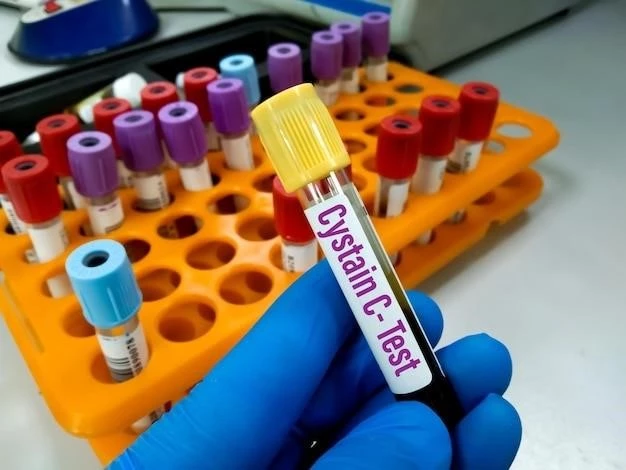Understanding Chromosome 15q Tetrasomy
Causes and Symptoms of Chromosome 15q Tetrasomy⁚ Learn about the genetic causes and common symptoms associated with this condition․
Diagnosis and Testing for Chromosome 15q Tetrasomy⁚ Understand the procedures and tests used to diagnose this genetic disorder․
Treatment Options for Chromosome 15q Tetrasomy⁚ Explore the available treatment approaches for managing the symptoms of this condition․
Causes and Symptoms of Chromosome 15q Tetrasomy
Chromosome 15q tetrasomy is a rare genetic disorder characterized by the presence of an extra copy of the long arm of chromosome 15 in each cell․ This condition typically occurs sporadically٫ with no specific known cause․ The main symptoms of chromosome 15q tetrasomy can vary widely among affected individuals․
- Developmental Delays⁚ Children with this condition may experience delays in meeting developmental milestones such as sitting, crawling, or walking․
- Intellectual Disability⁚ Cognitive impairment is common in individuals with chromosome 15q tetrasomy٫ ranging from mild to severe․
- Speech and Language Deficits⁚ Communication difficulties, including speech delays and language disorders, are frequently observed․
- Behavioral Issues⁚ Some individuals may exhibit behavioral problems like hyperactivity, impulsivity, or aggression․
- Seizures⁚ Epileptic seizures can occur in some people with chromosome 15q tetrasomy․
- Distinctive Facial Features⁚ Certain facial characteristics, such as a prominent forehead, wide-set eyes, and a thin upper lip, may be present in affected individuals․
If you suspect that you or a loved one may have chromosome 15q tetrasomy based on these symptoms, it is crucial to consult a healthcare provider for a thorough evaluation and proper diagnosis․ Understanding the causes and symptoms of this condition is the first step towards managing and addressing its challenges effectively․
Diagnosis and Testing for Chromosome 15q Tetrasomy
Diagnosing chromosome 15q tetrasomy often involves a combination of clinical evaluation, genetic testing, and imaging studies․ A geneticist or a genetic counselor may be involved in the diagnostic process to provide guidance and support․ Here are some common diagnostic approaches⁚
- Genetic Testing⁚ Chromosomal microarray analysis (CMA) is a common test used to detect chromosomal abnormalities, including the presence of an extra copy of chromosome 15q․
- Physical Examination⁚ A healthcare provider may perform a thorough physical exam to assess for any signs or symptoms associated with chromosome 15q tetrasomy․
- Developmental Assessments⁚ Evaluating developmental milestones and cognitive abilities can provide important clues for diagnosis․
- Imaging Studies⁚ Imaging techniques like magnetic resonance imaging (MRI) or computed tomography (CT) scans may be used to assess brain structure and detect any abnormalities․
It is essential to work closely with healthcare professionals specialized in genetic disorders to confirm a diagnosis of chromosome 15q tetrasomy․ Early and accurate diagnosis can help in designing an effective management plan and accessing appropriate support services․ If you suspect a genetic condition٫ seek guidance from healthcare providers experienced in genetic testing and counseling․
Treatment Options for Chromosome 15q Tetrasomy
There is no specific cure for chromosome 15q tetrasomy, and treatment mainly focuses on managing the associated symptoms and providing supportive care․ A multidisciplinary approach involving various healthcare professionals may be beneficial in addressing the diverse needs of individuals with this condition․ Here are some treatment options that may be considered⁚
- Early Intervention Services⁚ Accessing early intervention programs can help in addressing developmental delays and providing therapies to support growth and learning․
- Speech and Occupational Therapy⁚ These therapies can assist individuals in improving communication skills, motor function, and daily activities․
- Behavioral Interventions⁚ Behavioral therapies and strategies can help in managing challenging behaviors and improving social interactions․
- Medication⁚ In some cases, medications may be prescribed to manage symptoms such as seizures, hyperactivity, or mood disorders․
- Special Education Services⁚ Individuals with chromosome 15q tetrasomy may benefit from specialized educational programs tailored to their unique needs․
- Regular Monitoring and Follow-Up⁚ Ongoing evaluations by healthcare providers are essential to track progress, adjust treatment plans, and address any emerging issues promptly․
Collaborating with healthcare professionals, educators, and support services can help in optimizing the quality of life for individuals with chromosome 15q tetrasomy․ By exploring and implementing various treatment options, it is possible to enhance outcomes and provide the necessary support for both the affected individuals and their families․
Prognosis and Life Expectancy with Chromosome 15q Tetrasomy
Prognosis for individuals with chromosome 15q tetrasomy can vary widely depending on the severity of symptoms and the presence of associated health conditions․ While some individuals may experience mild challenges and lead relatively independent lives, others may require more intensive support and care;
It is important to note that the life expectancy of individuals with chromosome 15q tetrasomy can also be influenced by factors such as the presence of congenital heart defects٫ respiratory issues٫ or recurrent infections․ Regular medical evaluations٫ proactive management of symptoms٫ and early intervention services can all contribute to improving the overall prognosis and quality of life for affected individuals․
Support from healthcare providers, therapists, educators, and community resources is essential in helping individuals with chromosome 15q tetrasomy reach their full potential and lead fulfilling lives․ By providing a nurturing and inclusive environment, addressing individual needs, and fostering independence whenever possible, it is possible to enhance the long-term outcomes and well-being of individuals with this genetic condition․
Management Strategies for Chromosome 15q Tetrasomy
Effective management of chromosome 15q tetrasomy involves a holistic approach focusing on addressing the physical, developmental, behavioral, and social aspects of the condition․ Implementing tailored strategies and interventions can help individuals with this genetic disorder thrive and reach their full potential․ Here are some management strategies to consider⁚
- Individualized Care Plans⁚ Collaborate with healthcare providers to develop personalized care plans that address specific needs and goals․
- Multidisciplinary Team Approach⁚ Involve a team of professionals, including doctors, therapists, educators, and counselors, to provide comprehensive support․
- Early Intervention Services⁚ Access early intervention programs to support developmental milestones and enhance learning and communication skills․
- Behavioral Therapies⁚ Implement behavior management strategies tailored to the individual’s needs to address challenging behaviors and enhance social interactions․
- Educational Support⁚ Work with educators to create individualized education plans (IEPs) that accommodate learning styles and provide necessary support in the classroom․
- Family Support⁚ Seek support from family counseling, support groups, and respite care services to help families navigate the challenges and demands of caring for a child with chromosome 15q tetrasomy․
- Community Resources⁚ Explore community resources, advocacy organizations, and recreational programs that promote social engagement and inclusion for individuals with genetic conditions․
By implementing a comprehensive management strategy that addresses the specific needs of individuals with chromosome 15q tetrasomy, you can promote their overall well-being, development, and quality of life․ Remember that every individual is unique, so personalized care and ongoing evaluation are key components of effective management․
Research and Advances in Chromosome 15q Tetrasomy
Research into chromosome 15q tetrasomy is ongoing, aiming to deepen our understanding of the condition, develop new diagnostic tools, and explore potential therapeutic interventions․ Advances in genetic technologies and collaboration among professionals in the field have led to significant progress in this area․ Here are some key areas of research and advancements⁚
- Genetic Studies⁚ Ongoing genetic research is focused on identifying specific gene abnormalities on chromosome 15q that contribute to the symptoms of tetrasomy and exploring their effects on development․
- Therapeutic Approaches⁚ Researchers are investigating potential treatment strategies, such as targeted therapies, gene editing techniques, and pharmacological interventions, to alleviate symptoms and improve outcomes for individuals with this condition․
- Early Detection Methods⁚ Efforts are being made to improve early detection and diagnosis of chromosome 15q tetrasomy through advancements in genetic testing technologies and screening protocols․
- Supportive Care Research⁚ Studies are focusing on enhancing supportive care strategies, including behavioral interventions, speech therapies, and educational programs, to optimize the quality of life for individuals affected by this genetic disorder․
By staying informed about the latest research findings and participating in clinical trials or research studies, individuals and families affected by chromosome 15q tetrasomy can contribute to the advancement of knowledge and potential treatment options․ It is important to consult healthcare providers and genetic specialists to explore available research opportunities and stay updated on developments in the field․

Support and Resources for Individuals with Chromosome 15q Tetrasomy
Accessing support services and resources is essential for individuals with chromosome 15q tetrasomy and their families to navigate the challenges associated with this genetic condition․ Support can come in various forms, ranging from medical assistance to educational and community-based programs․ Here are some valuable support options to consider⁚
- Genetic Support Groups⁚ Joining support groups specific to chromosome 15q tetrasomy can provide a sense of community٫ shared experiences٫ and valuable information․
- Specialized Therapies⁚ Seek out therapies such as speech, occupational, and physical therapy to help individuals with this condition develop skills and reach their potential․
- Educational Advocacy⁚ Work with educators and special education professionals to ensure appropriate educational accommodations and support services are in place․
- Respite Care Services⁚ Access respite care services to provide temporary relief for caregivers and ensure quality care for individuals with chromosome 15q tetrasomy․
- Government Assistance Programs⁚ Explore government programs that offer financial aid, medical coverage, and other supportive resources for individuals with disabilities․
- Therapeutic Recreation⁚ Engage in recreational programs and activities tailored to the needs and interests of individuals with genetic conditions to promote socialization and well-being․
- Online Resources⁚ Utilize online resources and information hubs dedicated to chromosome 15q tetrasomy to stay informed, connect with others, and access useful tools and materials․
By proactively seeking out and utilizing available support services and resources, individuals and families affected by chromosome 15q tetrasomy can enhance their quality of life, access valuable information, and find meaningful connections within the community․ Remember that you are not alone, and there are resources and support networks ready to assist you on this journey․
Genetic Counseling for Families Affected by Chromosome 15q Tetrasomy
Genetic counseling plays a crucial role in supporting families affected by chromosome 15q tetrasomy by providing information٫ guidance٫ and emotional support throughout the diagnostic and management process․ Here are some key aspects of genetic counseling for families⁚
- Educational Support⁚ Genetic counselors offer in-depth explanations about chromosome 15q tetrasomy, its inheritance patterns, and the potential implications for other family members․
- Diagnostic Clarification⁚ Genetic counselors help families understand genetic testing results, interpret medical terminology, and clarify treatment options available for individuals with this condition․
- Emotional Support⁚ Genetic counseling provides a safe space for families to express their feelings, concerns, and uncertainties related to the genetic diagnosis, empowering them to make informed decisions․
- Family Planning Guidance⁚ Genetic counselors offer guidance on family planning decisions, prenatal testing options, and reproductive choices to help families navigate future pregnancies․
- Coordination of Care⁚ Genetic counselors collaborate with healthcare providers, therapists, and support services to ensure coordinated care and comprehensive support for families affected by chromosome 15q tetrasomy․
- Informational Resources⁚ Genetic counselors provide families with access to educational materials, support groups, research updates, and community resources to enhance their knowledge and connection with the genetic disorder community․
By engaging in genetic counseling, families can gain a better understanding of chromosome 15q tetrasomy, access personalized information and support, and make informed decisions about their healthcare journey․ Genetic counselors serve as valuable partners in navigating the complexities of genetic conditions, empowering families to advocate for optimal care and well-being for their loved ones․
